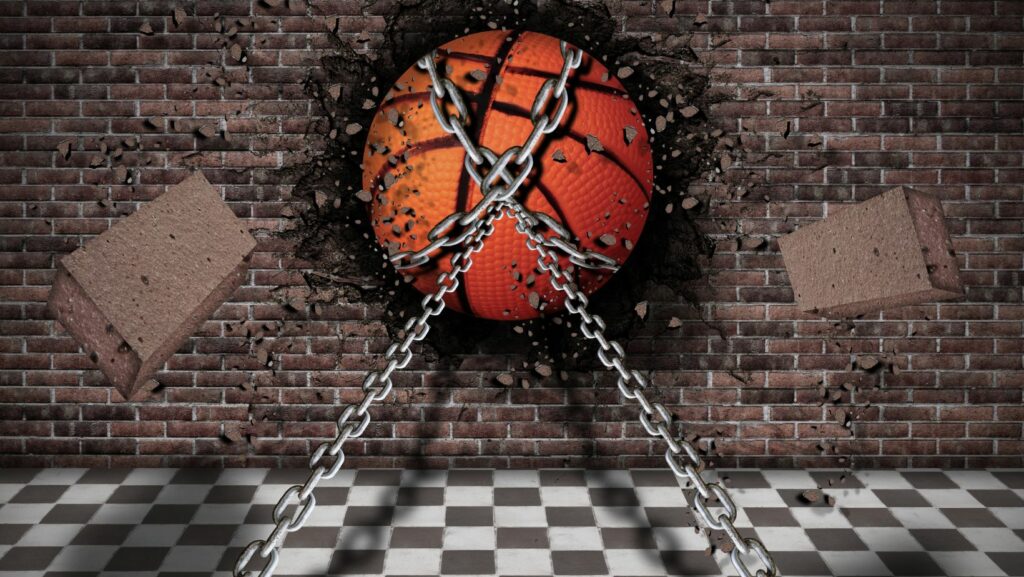The NBA is a league of tall men with big muscles and even bigger egos. But what does bonus mean in the NBA?
It turns out, bonuses can mean a lot of different things in the NBA. Some bonuses are given out for good behavior, while others are given out for on-court performance. And still others are given out as a way to keep players from leaving the league.
In this blog post, we’ll take a look at the different types of bonuses that players can earn in the NBA. Who knows, maybe you’ll even learn a thing or two about how the league works!
What does bonus mean in NBA
A bonus in the NBA is when a team scores more than 24 points in a quarter. The bonus is designed to encourage teams to keep scoring even when they are ahead, as it means they will get more points for doing so.
How do bonuses score in the NBA?
In the NBA, a bonus is awarded to a team that fouls an opposing player during the last two minutes of the fourth quarter or overtime. A bonus situation results in two free throws being awarded to the fouled player. If the player makes both free throws, his team is awarded one point.
What are the different types of bonuses in the NBA?
In the NBA, a bonus is a scoring system that awards points to a player or team for achieving certain statistical milestones. The bonus system was implemented in order to encourage players to improve their offensive and defensive production.

The most common type of bonus is the 1-and-1 bonus, which awards a point to a player who makes two free throws in a row. The 2-for-1 bonus is also awarded for making two free throws in a row, but it only counts if the player does it within the last two minutes of either the first or second half. If a player makes three free throws in a row, they receive what is called a “traditional 3-point play” bonus, and four free throws in a row results in a “4-point play” bonus.
Other bonuses include the “double bonus” (awarded for shooting fouls committed by the opposing team), the “home run” bonus (awarded to a team that scores four points more than their opponents in any one quarter), and the “grand slam” bonus (awarded to a team that wins by 20 or more points).
What are the benefits of bonuses in the NBA?
There are a number of benefits to bonuses in the NBA. One of the most important is that they act as an incentive for players to perform at their best. In addition, bonuses help to ensure that teams are able to retain their best players and attract new talent. Finally, bonuses help to create a more competitive environment in the NBA, which can lead to better games and more excitement for fans.
How do bonuses affect the game of basketball?
In basketball, a bonus is a penalty that is given to a team after that team has committed a certain number of fouls in a given period of time. For example, if a team commits six fouls in the first half of a game, that team will be given one free throw for each of those six fouls. The other team will also be given the ball out of bounds on the side of the court where the sixth foul was committed.

The bonus gives teams an incentive to play more cleanly and not commit as many personal fouls. The game of basketball is also more fun to watch when there are fewer fouls being called.
What are the drawbacks of bonuses in the NBA?
The NBA’s bonus system is designed to incentivize players to sign with a particular team. If a player meets certain performance benchmarks during their contract, they are eligible for a bonus. The drawback of this system is that it can be used to artificially inflate a player’s salary, which can create issues with the team’s salary cap. Additionally, bonuses can create tension between players and management if the player feels they are not being appropriately compensated for their performance.
Are bonuses fair to all players in the NBA?
There are often discussions regarding whether bonuses are fair to all players in the NBA. The main argument for bonuses is that they provide an incentive for players to achieve certain statistical milestones or win awards, which can help their team succeed. However, some people argue that bonuses can create a situation where players are rewarded for individual achievement rather than team success. In addition, some bonuses are based on subjective criteria, such as media votes, which some people feel is unfair. Ultimately, it is up to each individual to decide whether they believe bonuses are fair or not.
